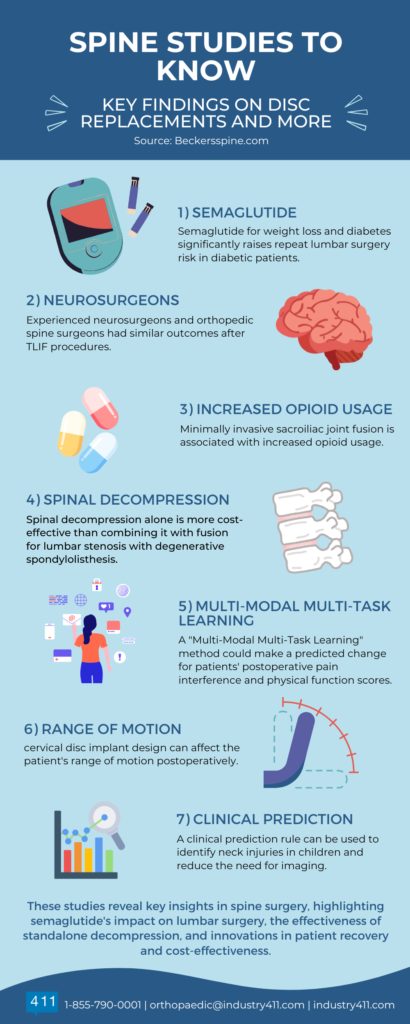
Recent studies in spine surgery reveal important findings on various aspects of treatment and recovery. Semaglutide, used for weight loss and diabetes, significantly increases the risk of repeat lumbar surgery in diabetic patients. Both experienced neurosurgeons and orthopaedic spine surgeons show similar outcomes after TLIF procedures. Minimally invasive sacroiliac joint fusion is linked to increased opioid use, while standalone spinal decompression is more cost-effective than fusion for lumbar stenosis with degenerative spondylolisthesis. Innovations like multi-modal multi-task learning could improve postoperative pain management and physical function. Additionally, cervical disc implant design impacts postoperative range of motion, and clinical prediction rules help identify neck injuries in children, reducing the need for imaging. These insights enhance understanding and approaches in spine surgery, improving patient care and cost-efficiency.
Source: Beckersspine.com





